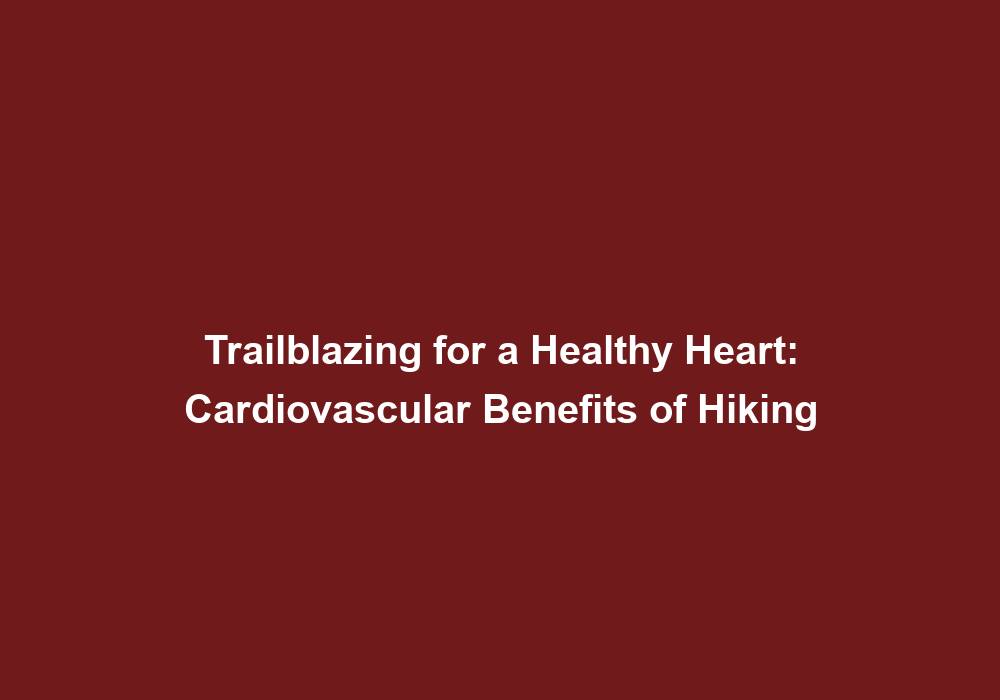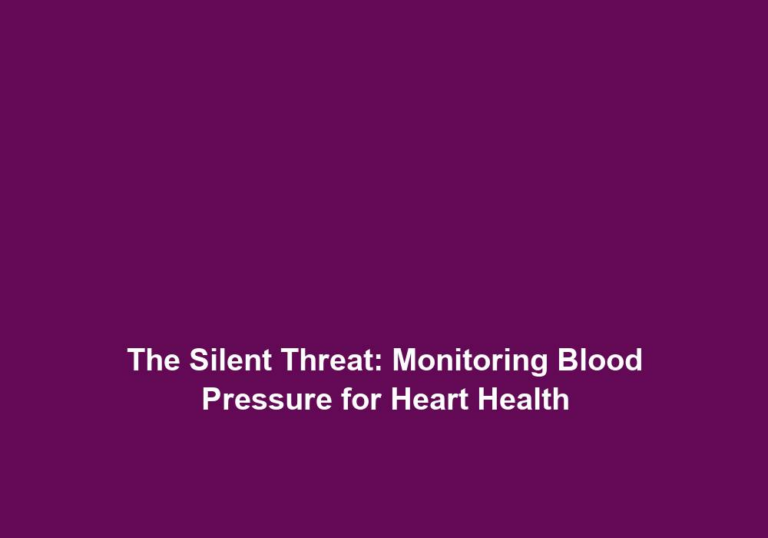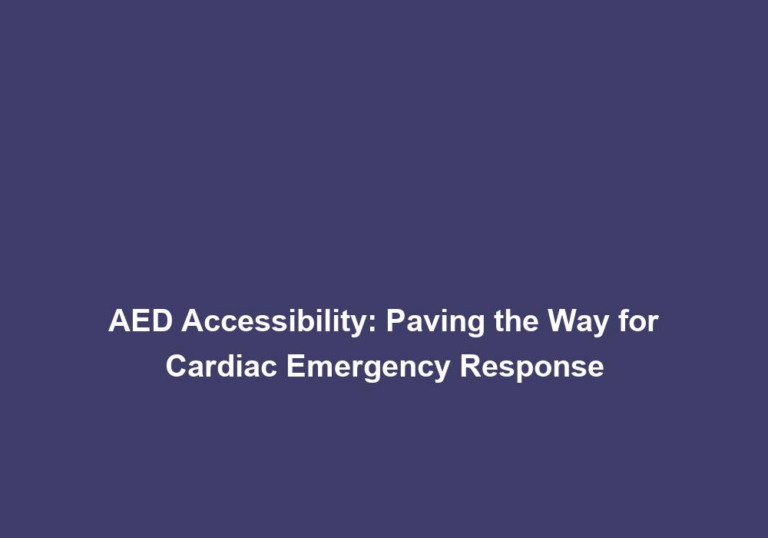Trailblazing for a Healthy Heart: Cardiovascular Benefits of Hiking
Hiking is not only a great way to explore nature and enjoy the great outdoors, but it also offers numerous health benefits, particularly for the cardiovascular system. Engaging in regular hiking activities can significantly contribute to a healthy heart and overall well-being. In this article, we will delve into the various cardiovascular benefits of hiking, highlighting why it is a fantastic form of exercise for individuals of all ages and fitness levels.
1. Boosts Heart Health
One of the primary benefits of hiking is its positive impact on heart health. Regular hiking helps to strengthen the heart muscle, improving its ability to pump blood effectively throughout the body. As you engage in this physical activity, your heart rate increases, promoting better circulation and oxygen delivery to all organs and tissues. This, in turn, enhances cardiovascular endurance and reduces the risk of heart diseases such as heart attacks, strokes, and high blood pressure.
Hiking also has additional benefits for heart health, including:
- Reducing the risk of blood clots: The physical exertion involved in hiking helps prevent the formation of blood clots, which can lead to serious cardiovascular issues.
- Strengthening the heart’s electrical system: Regular hiking can improve the heart’s electrical system, reducing the risk of irregular heart rhythms and other heart-related conditions.
By engaging in frequent hikes, individuals can experience these benefits and improve their heart health significantly.
2. Improves Cardiovascular Fitness
Hiking involves continuous movement, making it an excellent aerobic exercise that enhances cardiovascular fitness. Aerobic exercises focus on increasing your heart rate and breathing rate, leading to improved lung capacity and overall stamina. By challenging your cardiovascular system on a regular basis through hiking, you can enhance your body’s ability to utilize oxygen efficiently, leading to improved endurance and better overall fitness.
In addition to improving cardiovascular fitness, hiking also offers the following advantages:
- Enhancing blood vessel function: Hiking promotes the dilation and expansion of blood vessels, allowing for better blood flow and nutrient delivery to various parts of the body.
- Boosting the production of red blood cells: Regular hiking stimulates the production of red blood cells, which carry oxygen throughout the body, leading to improved cardiovascular function.
Engaging in hiking as a form of exercise can have a profound impact on cardiovascular fitness, resulting in better overall health and well-being.
3. Manages Weight and Reduces the Risk of Obesity
Obesity is a significant risk factor for various cardiovascular diseases. However, hiking can serve as an effective tool in managing and reducing weight. By engaging in regular hikes, you can burn a significant number of calories, contributing to weight loss and maintenance. Hiking also helps to build lean muscle mass, which can further boost your metabolism, making it easier to maintain a healthy weight and reduce the risk of obesity-related conditions.
Furthermore, hiking offers additional benefits for weight management and reducing the risk of obesity:
- Increasing energy expenditure: Hiking is a moderate-to-high intensity exercise that can help you burn calories and fat, aiding in weight loss.
- Improving insulin sensitivity: Regular hiking can improve insulin sensitivity, which plays a crucial role in maintaining a healthy weight and preventing obesity.
By incorporating hiking into your routine, you can effectively manage your weight and reduce the risk of obesity-related cardiovascular problems.
4. Lowers Cholesterol Levels
High cholesterol levels can lead to plaque buildup in the arteries, increasing the risk of heart disease. Hiking, as an aerobic exercise, has been shown to help lower bad LDL cholesterol levels while increasing good HDL cholesterol levels. This balance is crucial in reducing the risk of cardiovascular problems, such as atherosclerosis, and maintaining overall heart health.
In addition to lowering cholesterol levels, hiking provides other advantages for cardiovascular health:
- Reducing triglyceride levels: Hiking helps to reduce triglyceride levels, which are linked to an increased risk of heart disease.
- Enhancing the function of blood vessels: Regular hiking can improve the function and flexibility of blood vessels, promoting healthy blood flow and reducing the risk of cardiovascular issues.
By incorporating hiking into your lifestyle, you can effectively manage cholesterol levels and improve your cardiovascular health.
5. Regulates Blood Pressure
Consistent hiking can help regulate blood pressure levels, reducing the risk of hypertension. As you engage in this physical activity regularly, your blood vessels become more flexible and efficient in dilating and constricting, allowing for better blood flow. This helps to maintain healthy blood pressure levels, reducing the strain on the heart and decreasing the risk of cardiovascular diseases associated with high blood pressure.
Hiking also offers additional benefits for blood pressure regulation:
- Reducing inflammation: Regular hiking can help reduce inflammation in the body, which can contribute to high blood pressure.
- Decreasing stress levels: Hiking is a great way to relieve stress, and lower stress levels can lead to improved blood pressure control.
By making hiking a part of your routine, you can effectively regulate your blood pressure and reduce the risk of hypertension-related cardiovascular complications.
6. Reduces Stress and Promotes Mental Well-being
Apart from its physical benefits, hiking is also beneficial for mental health and overall well-being. Spending time in nature and being surrounded by beautiful landscapes can have a calming effect on the mind, reducing stress and anxiety levels. Additionally, hiking stimulates the release of endorphins, the body’s natural feel-good hormones, which promote a positive mood and enhance mental well-being.
In addition to reducing stress, hiking offers other advantages for mental well-being:
- Boosting cognitive function: The combination of physical activity and exposure to nature can improve cognitive function, including memory and attention span.
- Providing a sense of accomplishment: Reaching the summit of a challenging hike can boost self-esteem and provide a sense of accomplishment, leading to improved mental well-being.
By immersing yourself in the beauty of nature through hiking, you can experience improved mental well-being and reduced stress levels.
7. Strengthens Muscles and Bones
Hiking is a weight-bearing activity that places stress on your muscles and bones, stimulating their growth and strength. Uphill climbs and uneven terrains engage various muscle groups, including the leg muscles, core muscles, and glutes. This helps to improve muscle tone and strength, leading to better overall stability and balance. Furthermore, hiking is an excellent way to increase bone density, reducing the risk of osteoporosis and improving skeletal health.
In addition to strengthening muscles and bones, hiking provides other advantages for musculoskeletal health:
- Improving joint health: Hiking helps to lubricate the joints and maintain their flexibility, reducing the risk of joint-related issues.
- Enhancing posture and alignment: Regular hiking can improve posture and alignment, reducing the risk of musculoskeletal imbalances and injuries.
By incorporating hiking into your fitness routine, you can effectively strengthen your muscles and bones, leading to improved overall physical health.
8. Enhances Respiratory Health
Engaging in regular hiking activities can also improve respiratory health. The combination of fresh air and physical exertion opens up the lungs, increasing their capacity and strengthening the respiratory muscles. This can be particularly beneficial for individuals with respiratory conditions, such as asthma, as it helps to improve lung function and overall respiratory efficiency.
In addition to enhancing respiratory health, hiking offers other advantages for the respiratory system:
- Clearing mucus and congestion: The deep breathing involved in hiking can help clear mucus and congestion in the respiratory tract, promoting better lung health.
- Reducing the risk of respiratory infections: Hiking strengthens the immune system, reducing the risk of respiratory infections and related complications.
By incorporating hiking into your routine, you can experience improved respiratory health and better overall well-being.
In conclusion, hiking is an exceptional form of exercise that offers numerous cardiovascular benefits. By engaging in regular hikes, you can boost heart health, improve cardiovascular fitness, manage weight, reduce cholesterol levels, regulate blood pressure, strengthen muscles and bones, promote mental well-being, and enhance respiratory health. So, put on your hiking boots, explore the trails, and embark on a journey towards a healthier heart and a happier life.







